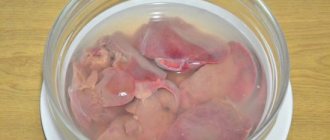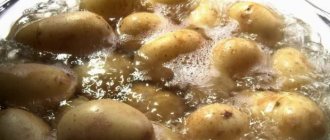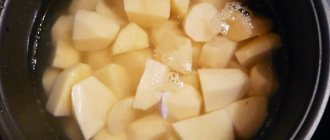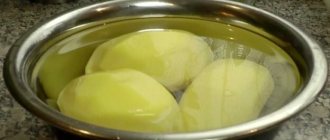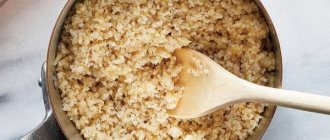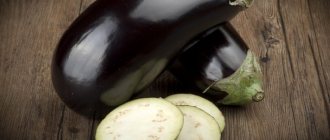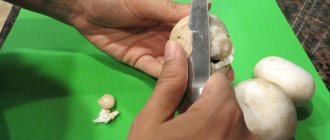People who often eat eggplant often mention that these products can be bitter. Various pre-treatment methods are used to eliminate bitterness, otherwise it will transfer to the entire dish, permeating other ingredients.
Some people, of course, like a little bitterness that adds a piquant flavor, but for others, eggplants need to be processed before cooking so that the bitterness goes away. It’s worth finding out what to do to make the product edible, why this happens and what it means.
Why does bitterness appear?
Before you learn how to properly remove bitterness from a product, you need to understand why bitterness occurs. The fact is that many housewives do not have this problem, and they do not understand why soak the “little blue ones!” from bitterness. This is explained simply. Not all products are bitter, but only some of them. If you manage to successfully select a vegetable, then you won’t have to soak it or process it in any other way.
In other cases, processing is required, since the bitterness of this product will permeate the entire dish, and not everyone likes bitterness. In addition, this taste feature is caused by the presence of a large amount of solanine in the product. It is solanine, which is a poisonous and toxic substance, that can ruin the taste of a dish.
But the most important thing is that this substance in large quantities can cause poisoning, especially in people with poor health. By pre-treating the product, it is possible to dissolve solanine and thereby neutralize the bitterness.
In other words, after processing not only the taste improves, but also the benefits of the dish increase. Therefore, to the question of whether it is necessary to soak the “little blue ones” before using them for food, the answer is clear – it is necessary. It is especially important to do this before frying.
The fact is that fried eggplants almost lose their beneficial properties and become saturated with cholesterol and carcinogens. It is generally not advisable to fry them.
But if a person prefers this particular method of preparing them, then solanine should be eliminated. In combination with cholesterol and carcinogens, this substance becomes very harmful, so you should definitely minimize the risks.
As for the question of whether it is necessary to process eggplants before cooking, the answer is ambiguous. Processing is necessary only for those vegetables that are bitter, and this is not typical for everyone. Some varieties can be eaten straight away or cooked straight away. Before soaking eggplants in salt water (one of the processing methods), it is worth finding out whether this is necessary in this particular case. It is not necessary to do this in the following situations:
- if the vegetables are recently collected from the garden (a bitter taste appears in them after some time);
- unripe eggplants (the younger, the less solanine it contains);
- the sizes are small (this is an indicator of youth and lack of bitterness);
- the peel is thin (vegetables with thick skin are considered overripe).
In addition, you need to evaluate the freshness of the product. If they are stale, it is generally undesirable to eat them, and even more so they will need to be soaked. Freshness is indicated by such features as:
- elastic green tail;
- absence of rot on the stalk;
- green leaves;
- smooth skin surface (but not slippery).
Based on these characteristics, you will be able to choose a product that does not need to be processed before cooking. However, even if you follow all the recommendations, you can buy a vegetable that will be a little bitter. But this is not scary, the bitter taste will go away if you use certain processing methods.
The benefits and harms of blue ones
Eggplant is a healthy product that can become an important part of a person’s balanced diet. Nightshades contain many beneficial vitamins and microelements necessary for the body. For example, they contain vitamins C, B, PP, substances such as magnesium, calcium, pectin, potassium, phosphorus, iron, sodium, and fiber. Useful properties of blue:
- Helps cope with cigarette addiction. Thanks to vitamin PP or nicotinic acid, the absence of cigarettes will be much easier to bear.
- Promotes weight loss. The low calorie content of blueberries and their vitamin-rich composition make them an indispensable product in the diet of those losing weight.
- Removes toxins and excess liquid. This happens thanks to the fiber contained in vegetables.
- Stimulates digestion and removes cholesterol. This is facilitated by the pectin content in nightshades.
The only harm that blue organisms can cause is associated with the solanine content in the skin of the vegetable crop. This alkaloid in large quantities can become poisonous, causing poisoning, accompanied by the following symptoms - nausea, vomiting, fatigue, fever, general malaise. Solanine is mainly found in old fruits. Milk, egg whites, and mucous soups will help neutralize the alkaloid after poisoning.
How to choose the right eggplants
A delicious vegetable dish will only turn out if you use high-quality and fresh ingredients for its preparation. When choosing eggplants, you need to follow the advice of gardeners, which will help you avoid buying spoiled or unripe vegetables.
Rules for choosing blue ones:
- You should avoid purchasing vegetables that have brown spots on the skin. They indicate that the fruit is not fresh.
- On average, 1 large eggplant should weigh from 350 to 500 g. If the vegetable you are looking at has less weight, then it was picked early or has already begun to deteriorate.
- There should be no defects on the skin of the blue ones (dents, scratches, etc.). The presence of any flaws indicates the beginning of the rotting process.
- A low-quality eggplant will have a dry, brown stem.
- The shine and smoothness of the surface layer of a vegetable is the main sign of quality.
- If you press your finger on an overripe or early-picked fruit, a dent will remain on it. The pressure mark on a timely harvested vegetable will disappear in a few seconds.
- You should choose medium-sized fruits. Large eggplants have a high concentration of solanine (a toxic substance), so you should avoid buying them. Small vegetables indicate insufficient maturity or improper cultivation of the garden crop.
- The seeds inside the blue ones should be small and light. At the same time, they will not emit an unpleasant odor. Vegetables grown with chemicals will have large seeds and a light brown color.
- The presence of green areas on the fruit pulp indicates a high concentration of solanine.
- After cutting the vegetable, the flesh should not change color. Otherwise, it contains many chemicals that are harmful to health.
Changes in the properties of frozen fish during storage
Physicochemical characteristics
Physicochemical changes include shrinkage, changes in color and histological structure.
When storing frozen fish, there is always a difference in water vapor pressure above the surface of the fish and the surrounding air environment of the refrigeration room. The pressure difference causes the evaporation of moisture from the surface of the fish and, as a consequence, its movement from the inner layers of the fish to the surface, i.e. internal diffusion. This difference can be reduced by lowering the storage temperature and increasing the relative humidity.
As a result of the evaporation of moisture, the fish shrinks, which depends on its type and chemical composition, properties and size, type of packaging, temperature and duration of storage, method of stowage and location in the chamber or hold, cooling system, refrigeration room, degree of loading, amount of heat inflow etc. The surface of the fish and nearby layers of muscle tissue are mainly subjected to shrinkage.
The color of fish meat dehydrated during refrigerated storage changes. It becomes spongy, and after thawing and cooking it becomes dry and fibrous.
The degree of shrinkage and quality changes depends on the storage temperature and the range of its fluctuations. As the storage temperature decreases, the shrinkage of frozen fish decreases: when storing frozen fish at a temperature of -30°C, the shrinkage is 3 times less than at -18°C. A decrease in storage temperature from -30 to -40°C is accompanied by a decrease in shrinkage by 0.013% each month of storage.
The amount of shrinkage depends on the chemical composition of the fish: the more moisture the fish contains, the more it can evaporate, so shrinkage is greater for lean fish than for fatty fish.
The drying of frozen fish also depends on the method of cooling the refrigeration chamber and hold. With a panel cooling system, shrinkage is less than with air cooling. Dense stacking of frozen fish helps reduce product shrinkage.
Factors such as glaze thickness, storage time, relative humidity and air circulation speed also play an important role. When storing frozen fish packed in polymer film, dehydration occurs during storage, but the moisture evaporating from the product remains inside the package in the form of frost.
One of the most effective ways to reduce the shrinkage of frozen Ufi fish during long-term storage, along with lowering the storage temperature, is its glazing using water-soluble polymer materials, as well as packaging in gas-vapor-proof films.
Soaking in salt water
Salt water will remove the bitterness from the vegetable.
Soaking in salt water is the most popular option. The soaking time depends on what pieces the vegetable is cut into. If these are thin circles or slices, half an hour will be enough. If it is important to soak the eggplants as a whole, it will take 2 hours. The main thing is to take time so that all the bitterness comes out.
Side effects
In the literature and articles, one can increasingly find opinions about the dangers of protein supplements. It is believed that when the protein mixture is digested, ammonia is released, which is converted by the liver into a harmless compound. The latter, in turn, puts a strain on the kidneys, which are forced to struggle with processing excess protein (if you have exceeded the dosage). It turns out that such important organs have to endure a double load? - Not at all.
Experiments have confirmed that taking 3 grams of protein per kilogram of weight does not pose any danger to the kidneys. In addition, with active training, the chance of gaining weight (specifically in terms of fat) is also minimal.
You will certainly gain weight, but it will be muscle.
Salt to the rescue
The first way to remove bitterness from eggplant is to use salt. This method has several options - “dry” and “wet”.
The “dry” method is very simple. The eggplants are cut and sprinkled with coarse salt at the cut points. After 20 minutes, droplets of liquid will appear on the surface. Now the eggplants can be rinsed with water or simply wiped with a dry towel. With this method, coarse salt is preferable to fine salt, because the structure of the eggplant pulp is very porous.
The “wet” method is also not particularly complicated. Eggplants are cut and placed in a pan of cold salted water. Since eggplants do not sink in water, you will have to drown them using pressure. Half an hour of this “bath” and all the bitterness from the eggplant goes away. All that remains is to rinse them, squeeze out excess water and proceed directly to cooking.
We invite you to familiarize yourself with the canopy over the door with your own hands: how to make an entrance canopy, wooden, metal, polycarbonate, types
Processing rules
So, how to soak eggplants? The best thing to do to prevent them from becoming bitter is to soak them in salt water. Vegetables that are too watery are not suitable for all recipes, so after this processing method you will have to remove excess moisture. If you don’t want to waste time on this, then you can not use water, but simply salt the eggplants - the result is almost the same.
Before doing this, you should figure out how long to soak the “little blue ones”. Some people think that if the product is left in solution for too long, it will be too salty. This is wrong. It is permissible to place it in salt water even for the whole night - this does not affect the taste.
Although it should be understood that the younger the vegetable, the less time it takes to eliminate the bitter taste. The easiest way is to try a piece of raw eggplant after some time. This will allow you to understand whether it is bitter, and also assess how much it has been saturated with salt.
Experienced housewives most often use salt so that the “blue” does not taste bitter, but you should know what and how to do to get results. There are only two main methods of processing, thanks to which the unpleasant aftertaste goes away.
Soaking in salt solution. With its help, you can eliminate the bitter taste of an entire vegetable. To carry out such processing, a basin or other deep container is required. The solution is prepared from water and ordinary table salt (35 g per 1 l).
Vegetables need to be immersed in the solution either whole or pre-cut into several parts (this will reduce the soaking time). Since the soaked eggplants need to be in salt water, they should be covered with a flat dish and a bottle of water or something else placed on top so that the vegetables do not float. The residence time of the product in the solution depends on its size.
Whole vegetables are soaked for about 2 hours, and cut into pieces - less than an hour. This is also affected by the maturity of the product - old vegetables need to be kept in water a little longer. The soaked fruits are washed and left in a sieve to drain off excess moisture. After this, you can start cooking.
Dry processing. In this case, water will not be needed. The product is cut into pieces (slices, cubes, straws) and dried. Then the pieces of vegetables are placed in a container and sprinkled with salt (sea, iodized - any, but without spices).
Next, you should mix the salt with the “blue” by hand so that it is better absorbed. The duration of this treatment is about 20 minutes. You can tell that they are ready to eat by the drops of liquid on their surface. This means that the product needs to be rinsed and dried using napkins.
In addition, additional methods can be used to remove bitterness from these products:
Eggplant is a very healthy vegetable for the body, but not everyone can eat it because of its inherent bitterness. This problem can be easily dealt with using fairly simple processing methods, after which the vegetable not only retains its properties, but also becomes more tasty and healthy.
Source
- in salt water
You can soak eggplants in salt whole or in pieces. To prepare a saline solution, use 1 liter of cold drinking water and 1 tablespoon of salt.
How to do this correctly?
- Wash eggplants well before cooking.
- Each is cut into round or longitudinal slices, cubes or in another way specified in the recipe.
- Place in a bowl of salted water.
- Press down from above with pressure so that they do not float up.
- Then rinse with fresh water and place on a towel to remove excess moisture.
You can soak bitter vegetables, cut into pieces, not only in salt water, but also in milk. The technique is very similar to the previous one:
- the vegetable is washed and cut as needed;
- place in a container with milk (no need to add salt);
- press down from above with pressure so that they do not float up;
- after 30-40 minutes, rinse with running water and dry on a towel.
If you don’t have the desire or time to soak vegetables, the bitterness can be removed with salt. It is not distributed in water, but directly on eggplant slices. For this:
- Ripe vegetables are washed and cut into pieces;
- Add salt to a flat container or glass board and place slices on top;
- their surface is also sprinkled with salt;
- When the juice appears on the cut, the vegetables are ready for cooking - they are rinsed or wiped with a paper towel.
Salt water will remove the bitterness from the vegetable.
Soaking in salt water is the most popular option. The soaking time depends on what pieces the vegetable is cut into. If these are thin circles or slices, half an hour will be enough. If it is important to soak the eggplants as a whole, it will take 2 hours. The main thing is to take time so that all the bitterness comes out.
The soaking algorithm looks like this:
- Prepare a solution: take 1 tbsp for 1 liter of water. l. salt. You will also need pressure to “drown” the vegetables in the pan.
- Place the vegetables in a saucepan, add salted water and set for the required time.
- Rinse with water and allow excess liquid to drain. For faster results, it is permissible to squeeze.
To carry out the procedure, prepared vegetables are cut and placed in a deep container, sprinkled with coarse salt. This is a mandatory condition, because the structure of the pulp is porous - fine salt will be absorbed, and the dish will be over-salted. They use sea salt, mineralized salt, ordinary salt, the main thing is that the coarser the better. After 20-30 minutes, when droplets of liquid appear on the surface, the eggplants are washed with running water.
There is another option, how to soak eggplants using the dry method. Place a wire rack at the bottom of the container and eggplants coated with coarse salt on top. Cover the dish with a lid and leave for 30-35 minutes. put under oppression. After this time, the vegetable is thoroughly washed.
The method used depends on the freshness of the product. It is permissible to soak fresh ones without oppression, but those that have been sitting for a long time require a lot of effort to extract the bitterness. Fresh eggplants are shiny, smooth, with elastic skin, firm, with green leaves near the stem. If the vegetable is soft and the stalk is dry, it was cut a long time ago - oppression is required.
It is better to soak eggplants in ice water overnight. The water is first cooled in the refrigerator. It is permissible not to cut vegetables, but to put them whole in a container and fill them with this water. Then the pan is placed in the refrigerator for 8-10 hours.
At the final stage, thoroughly squeeze the water out of the vegetable. Vegetables must be salted before cooking.
Soaking fresh eggplant in milk is another option that doesn't require salt. Vegetables for 30 min. They are immersed under pressure, after which the liquid is squeezed out of them. It is good to use a paper towel for spinning. After this, the vegetables are dried and used for cooking.
For soaking in milk, you should not cut the product too finely; medium pieces are ideal. They are cut in half or into 4 parts.
Dark-fruited nightshade, also known as eggplant, is loved by many as a snack or side dish. But before cooking, it is often necessary to remove the bitterness from eggplants before frying - after all, the freshest young fruits do not always end up in our grocery basket. There are several methods that housewives and professional chefs use. We have selected 7 of the most effective ones for you.
Proven ways to get rid of bitterness in eggplants
There are several proven ways to remove bitterness from eggplants. You can do this by salting, soaking nightshades, freezing them, soaking them in milk, or peeling them. The method must be chosen individually, depending on what dish you want to prepare. For example, peeling involves completely removing the skin, while some recipes require it. Below you will learn some simple methods for removing bitterness that are sure to make eggplant dishes even more delicious.
Salt treatment
There are two main ways to remove bitterness from blues. Both of them involve the use of ordinary iodized salt, which is found in every housewife. The first is called “dry”, since during its implementation there is no soaking. You can season eggplants cut into slices, circles, and cubes with salt. How to properly carry out salt treatment without water:
- Prepare the food: wash the eggplants well, wipe with a napkin, cut, remove the tails. Take coarse salt. Large granules are necessary due to the porosity of the blue skin: if the salt is too fine, the skin will absorb it, and the future dish may become over-salted because of this.
- Take a deep bowl and place chopped or whole vegetables in it. Cover them with salt. It will take about twenty minutes for the eggplants - then drops of liquid will appear on their surface.
- After the required time has passed, wash the eggplants, dry them and use them for further cooking.
Soaking in water
The “wet” method of salt processing of eggplants is also extremely popular. It's great if you don't want to cut the blues before processing, but want to remove the bitterness while they're still whole. To carry out this procedure, you will need pressure that will not allow the nightshades to float. How to properly soak fresh bitter eggplants in salt water:
- Fill a pan with clean, cold, salted water. One tablespoon of salt is enough for a liter of water. Cut the eggplants into circles, cubes or slices, or you can leave them whole.
- Place the vegetables in the pan. The blue ones will not completely sink in the water, so you will need to install a pressure on top: this can be a wooden round board the size of the pan, with a stone on top.
- Keep the eggplants in salted water for about thirty minutes. If you put in whole vegetables, the de-bittering procedure will take several hours.
- Rinse the vegetables after the required time, squeeze them lightly. You can use nightshades for cooking.
The easiest way to peel blue ones
If you don't want to spend a lot of time handling the eggplants, or the recipe calls for peeled vegetables, you can get rid of the bitterness by peeling the blue ones. To do this, you will need a special vegetable peeler or a sharp knife. By removing the peel, you will remove the source of bitterness - the solanine it contains. How to peel blue ones:
- Wash the eggplants thoroughly and wipe with a dry towel to remove moisture.
- Using a vegetable peeler or knife, carefully remove a thin layer of skin.
- Chop or grate vegetables depending on the recipe for later cooking.
Another alternative way to make blues less bitter is to leave them in the freezer for a few hours. To do this, rinse the product, dry it, and cut it into slices. Place them on a plate and leave to freeze for four hours. When the required amount of time has passed, remove the blue ones and squeeze out the excess liquid. They are perfect for making eggplant puree or caviar, because they quickly lose their shape when cooked.
- Licorice root - medicinal properties and contraindications
- 12 Amazing Uses for WD-40
- Doctor Myasnikov urged not to forget about diseases that are more dangerous than coronavirus
- in the freezer
For preparing “overseas eggplant” caviar, the method of removing bitterness using cold is well suited. It is used when there is time to spare, and vegetables do not necessarily need to retain their shape during heat treatment. If necessary, wash the eggplants, peel them, then cut them into pieces, put them in a plastic bag and put them in the freezer for at least 3-4 hours. After removing from the freezer, the vegetables are defrosted naturally, and then pressed to remove excess liquid. The bitterness goes away along with it.
Method 4 - by removing seeds
There is a version that it is the eggplant seeds that are bitter, because their shape resembles pepper seeds.
When there is no time for soaking, cooks remove the seeds:
- the vegetable is washed well;
- cut lengthwise with a sharp knife;
- scrape out the seeds with a spoon (as far as possible);
- rinse and dry with paper towels.
Do I need to peel eggplants before frying? Is it necessary to peel eggplants before cooking?
The culinary delights of every modern housewife are unique. Healthy food recipes deserve the most attention. And vegetables most often become their main ingredients. Along with the usual fruits of zucchini, cabbage, and carrots from the garden, eggplant has taken its rightful place on our table. After all, you can invent many unusual, tasty, nutritious, healthy dishes from it. Do I need to peel eggplants? This question interests many cooks, especially beginners.
The process of pre-processing the vegetable is also of no small importance. To this day, cooks, especially beginners, are faced with the question: is it necessary to peel eggplants?
There is an opinion that in many vegetables all the benefits lie in the peel. From a dietary point of view, the dietary fiber contained in eggplant normalizes the functions of the gastrointestinal tract. And the bitterness present in the vegetable is not in the peel, but in the pulp. Therefore, before cooking, it is recommended to soak it in water with a little salt.
If the fruit is overripe, it is better to remove the peel, but representatives of the young harvest do not need to be peeled. Therefore, there is no set rule whether you need to peel the eggplant or not. Usually this point is taken into account when choosing a dish that you want to cook.
For example, without the peel, eggplant may lose its shape when it gets into the pan, so it is important to decide for yourself whether you need to peel the eggplant before frying. Still, in order to get whole pieces when frying, you should not remove the shell from the eggplant. If the fruit is young, then it is enough to cut it into slices and, after breading, place it in hot oil in a frying pan. It is better to soak overripe chopped slices for half an hour in salt water.
If you plan to stew the blue ones, it is better to clean them before cooking. In the case of preparing caviar, puree, ajapsandal, cleaning is mandatory.
Rules for cleaning eggplants
Just like any other vegetable from the garden, eggplant requires careful treatment with running water. How to peel the blue ones? Using a knife with a sharp blade, remove the tip at the base of the stem. This area of the fruit is the hardest and removing it will only improve the consistency of the dish.
How to remove the peel, if, of course, the recipe requires it, the following everyday tips will help:
- Holding the fruit firmly with your hand on a cutting board, using a vegetable peeler or paring knife in your other hand, remove longitudinal strips of peel from top to bottom. Such alternating movements must be performed until the eggplant is completely freed from its shell.
- If you do not peel off some of the longitudinal stripes on the pulp, you can get a striped eggplant. A distinctive feature of this approach is not only its originality, but also the prevention of the pulp from falling apart during cooking.
In a word, getting rid of the eggplant peel can turn into not only a mechanical, but also a creative process. It all depends on your ingenuity. Well, whether to clean it or not is everyone’s choice.
Do I need to salt eggplants when cooking?
Eggplant is a wonderful vegetable that is very popular in many cuisines around the world. And this is not surprising, because in addition to the original spicy taste, it has a huge amount of useful substances.
Eggplant contains fiber, soluble sugars, pectin, proteins, potassium, calcium, phosphorus, iron, magnesium, sodium, vitamins C, B1, B2, B5, PP. In addition, 100 grams of this wonderful vegetable contains only 28 calories, which is why everyone who watches their figure loves it very much.
There are a huge number of recipes for eggplant dishes, and almost every one of them begins with the advice to generously salt it before cooking. Is this really necessary or can this advice be ignored in some cases? Let's figure it out together.
There are 2 main reasons why recipes recommend salting, drying, and then rinsing eggplant slices before cooking.
Reason one - g
speak. Thanks to salt, the eggplant releases juice, which removes the bitterness from it. Many people say so. However, culinary guru Harold McGee assures that adding salt only changes our perception, but not the taste of eggplant itself. There is an opinion that salt does not remove bitterness at all.
Listen to your taste sensations. If you are hypersensitive to the taste of eggplant and you can clearly feel its bitterness, then to be on the safe side, you can salt it. To remove bitterness, it is usually recommended to salt the eggplant pieces and leave them for 30 minutes, maybe even 60 - then the eggplant will fry better.
But if you can do without pre-salting, keep at it, otherwise you will one day find yourself frying an exhausted, shriveled eggplant, waiting for that perfect silky texture.
The second reason is oil absorption. Salt draws water from the cells, they shrink and the sponge-like structure of the eggplant is disrupted. It is sometimes said that salt “thickens” the flesh, so it will absorb less oil when frying.
But according to another opinion, shrunken cells, on the contrary, absorb much more oil when frying, and this allows you to get a more delicate, silky texture as opposed to a meaty and elastic one.
Celebrity chef Kenji Lopez-Alt focuses not on the oil, but on the air: “The main condition for obtaining the optimal texture of the eggplant is the destruction of its cellular structure and the removal of air from it. To do this, you need to put a “sandwich” of eggplant slices between paper towels and plates in the microwave before frying.”
Certainly. And not only the size, but also the age and structure of the pulp. “Plucked before they are fully ripe, cooked over several days, eggplant is sweet on its own and needs no salt,” writes vegetarian cookbook author Deborah Madison.
Minimalist chef Mark Bittman assures his readers: “If the eggplant is fresh and firm, chances are good it will be good without added salt, no matter the variety.” Some chefs go even further and claim that eggplant should be “hard as a rock.”
If there is nowhere to get fresh eggplant, or the age of the vegetable remains a mystery to you, look for small Asian varieties (but not the seedy green southeastern varieties, which are valued precisely for their bitterness, otherwise the effect will be the opposite).
As for vegetables that have been stored for a long time and have already “aged”, salt will help reduce the bitterness, which increases with the age of the fruit. If the eggplant is large, soft or very seedy, it is worth the time and effort to pre-salt it.
Source
other methods
How can you remove the bitterness from eggplants before cooking?
Other effective methods are used for this:
- The chopped vegetables should be salted, and a paper napkin should be placed on top and sprinkled with milk. All this should be pressed down with a weight, and after 10 minutes the product will be without bitterness. The juice is removed with paper. Vegetables just need to be wiped dry.
- You can also remove the bitterness of eggplants with boiling water. Pour it in for 5 minutes, and there is no need to salt the water. Then the liquid should be drained and the vegetables should be dried.
- You can boil the eggplants. This method is best used in cases where the shape of the vegetable is not important. Place the chopped cubes into boiling water and boil for 2 minutes. Then they are taken out with a colander, and after the water has drained, you can start cooking.
- The bitterness is eliminated after removing the seeds. If you have time and desire, you can remove them.
Using any of the above methods, you can quickly get rid of the bitterness of eggplants. Now you can cook different dishes without worrying about their taste.
Method 1 - using boiling water
Fresh eggplants grown on your own plot with sufficient watering and good care do not need to be processed before frying. You just need to wash and cut them. But if the vegetables were bought at the market or supermarket, there is a chance that they already have a bitter taste. It is concentrated in the peel and pulp while the eggplant is being transported and lying on the shelf.
To rid a product of bitterness using boiling water, you need to:
- cut the pulp into cubes;
- place in a colander;
- Dip into boiling salted water for 2 minutes;
- remove from the water and let it drain;
- then cook according to the recipe.
Boiling water helps remove the taste very quickly, but this technique is not suitable for all recipes. It is recommended to use it only for those dishes in which the shape of the cut is not particularly important. There is no need to prepare vegetables in advance in this way - such processing is suitable immediately before cooking.
Why and how to soak eggplants? Useful tips
Eggplant is a common vegetable, but not everyone’s favorite. This is probably due to its taste characteristics. Dishes made from bluefish can be called somewhat savory. And all because of the tart and somewhat bitter taste. Therefore, it is believed that eggplants need to be soaked before cooking. But is it really necessary to do this? It turns out that the reason lies in the “age” of the fruit and the variety. Let's take a closer look at why and how to soak eggplants. Perhaps this article will help you take a different look at generally accepted culinary habits or change them somewhat.
Reasons for the unusual taste. Why and how to soak eggplants?
Do you know that it turns out that not all fruits taste so piquant? Even before cooking begins, you can determine whether they will be bitter.
Firstly, it depends on the degree of ripeness of the eggplants. Young blues usually do not have tart “shades”. And if you grow them at home, then this is a guarantee of getting an excellent-tasting vegetable. After all, on your own plot, all garden work (fertilizing, weeding, harvesting) is carried out as expected. It is especially important to water the blue ones on time. By absorbing water, they become saturated with moisture and become very pleasant to the taste in cooked dishes. In mass cultivation, this rule is not always observed. In addition, the harvest is not carried out very regularly, so large fruits with hard brown veins and dense pulp come across.
Wednesday, June 27, 2012
Why, and is it necessary, to salt eggplants?
This is just some eternal question: to be or not to be salted or not salted. My beloved mother, at the head of all humanity from the countries of the former Soviet Union, categorically stated - salt. Because if you don’t salt the eggplant, that’s it. Of course, it won’t be fatal without leaving the cash register, but it will turn out to be harmful and not useful. Like an obedient daughter, I salted and salted and salted.
Will eggplants taste bitter if they are not salted?
NO! Based on my own experience, I can add that if you take small eggplants, you don’t need to salt them. There's definitely no bitterness there. And the seeds in them are small and light brown and just brown. And further. If anyone tries to try them raw, then, of course, basically all eggplants have a specific taste that disappears during cooking. And not because they were salted.
Why do you need to salt or soak eggplants in salt water?
Eggplants are salted to remove excess moisture. This is especially true for large eggplants, because they can become too soft when cooked if they are not salted. Otherwise, they will be elastic (if such a characteristic can describe the result of cooking eggplants) and retain their shape.
Can you get poisoned from eggplants if you don't salt them?
Some sources mention that over-ripe eggplants are also harmful to health. I can’t help but confirm or deny, because in our store we always sell under-ripe eggplants rather than over-ripe ones. If the eggplants have “bedsores” or are soft, then I probably wouldn’t buy them.
Should I salt or add a brine solution to the eggplants so that they absorb less oil?
NO! Due to their structure, eggplants absorb 4 times more oil than, for example, potatoes. If you want to save on oil or follow a healthy lifestyle, cook this product on the grill or in the oven. If you want them fried, then after cooking, place them on napkins that will absorb excess oil.
So, to summarize:
Source
To prevent eggplants from becoming bitter...
Experienced housewives have long invented reliable ways to rid eggplants of bitterness:
The easiest way is to cut off the skins of vegetables, which is where the bitterness is concentrated;
Cut the vegetables into pieces, circles or strips (as required by the dish being prepared) and sprinkle them with salt, mix thoroughly so that all the eggplants are saturated with it. After 15 minutes, the eggplants should be thoroughly rinsed under running cold water and dried. The bitterness will go away with the juice released from the vegetables;
The vast majority of housewives advise soaking eggplants to remove bitterness. To do this, you need to chop the fruits and pour plenty of salt water on them (at the rate of 2 tablespoons of salt per liter of water) for an hour (for finely or thinly chopped vegetables, half an hour will be enough). The fruits should be under pressure - then the efficiency of soaking will increase significantly. After the specified period of time, drain the water and dry the eggplants;
Salt the eggplants, chopped as necessary, and cover them with a paper towel lightly moistened with milk. Press the towel onto the vegetables (you can use a cutting board as a priss), and after 15 minutes, remove it from the vegetables. The bitterness will be absorbed into the paper, and the eggplants will only have to dry;
If using salt in the above tips doesn't work for you, the method of soaking eggplants in boiling water will come in handy. Vegetables need to be cut and pour boiling water over them for 5-10 minutes. Then the water is drained, the eggplants are dried - the bitterness is gone!
If you need whole vegetables to prepare a dish, for example, stuffed eggplant, you can put them in a saucepan of boiling salted water. To prevent eggplants from becoming bitter, only 2-3 minutes of this procedure will be enough;
Another way to remove bitterness from whole eggplants is to cut off the top and tip of the vegetable and alternately place it for half an hour in an upright position on a 1 cm thick layer of salt. After this, the eggplants should be thoroughly washed and dried.
The feasibility of soaking eggplants
You can get rid of the bitter taste of eggplants by cutting them into cubes or circles before cooking and soaking them in salt water for 20-40 minutes. You can also sprinkle them with salt, wait until they release juice, and rinse it off under running water. Eggplant bitterness is most often concentrated in the eggplant peel, which can become bitter from overripeness, drought or cold, but modern varieties of this vegetable are protected from the bitter taste by new breeding developments.
With careful care for grown eggplants and timely harvesting, they almost never taste bitter.
Most often, bitterness is found in unripe or overripe eggplants, which can be easily identified by their dark seeds and rather tough fibers. Greenhouse eggplants, grown at optimal temperatures and sufficient moisture, can be purchased throughout the year. They are not bitter at all, however, unfortunately, they are inferior to ground eggplants in their taste. In total, eggplants can be soaked in salt water, depending on the method of growing them, the degree of ripening, the variety and the recipe for preparing the dish for which they are soaked.
Choosing the right vegetable
For any dish, it is important to choose the right fruit. The bitterness comes not from the pulp, but from the skin of nightshades, since it contains a special component - solanine. In large quantities, this substance is harmful to humans; as we have already said, it can cause poisoning.
Immediately after being picked from the garden, eggplants have almost no bitterness. But once stored on the counter, they produce a lot of solanine. To choose a product without bitterness, you must use the following tips:
- It is preferable to buy young fruits. If it is possible to purchase them on the market, then you should do just that. Such vegetables can be cooked immediately, and there is no need to get rid of bitterness.
- It is necessary to inspect the stalk. It should be elastic, and the leaves should be green and lively. You should not buy products with dry leaves.
- You need to choose eggplants with a smooth surface. Moreover, it should creak a little when you run your finger over it. Fruits with slippery skin should not be purchased.
- Large soft vegetables contain a lot of solanine. They are considered old, so they do not need to be selected.
- It is necessary to choose fruits with darker skins, as they contain more antioxidants.
How to easily remove bitterness from eggplants? Several effective methods are used for this. You need to choose them depending on what dish will be prepared. Using simple methods, you can make a tasty and healthy dish.
Eggplant cooking tricks you need to know
When purchasing eggplants, always try to choose vegetables with the darkest skin as they contain less bitterness than other eggplants. Also, the fruits should be shiny, elastic and have a fresh green stalk. Never buy eggplants with spots, wrinkled skin or brown stems - they were picked a long time ago and have lost all their beneficial nutritional properties.
Try not to cook eggplants with potatoes, as it negatively affects their taste.
In addition, eggplants have one peculiarity - during frying, they, like a sponge, absorb a large amount of vegetable oil. To avoid oversaturation with fat, cut them, soak for 20 minutes in salted water and squeeze - after this the eggplants will absorb much less oil. They should be fried in a hot frying pan, and in the first minutes this can be done without vegetable oil at all, adding it gradually after frying. Fried eggplants go best with peppers and tomatoes, so it’s best to serve them with a side dish that will highlight their spicy taste.
Source
